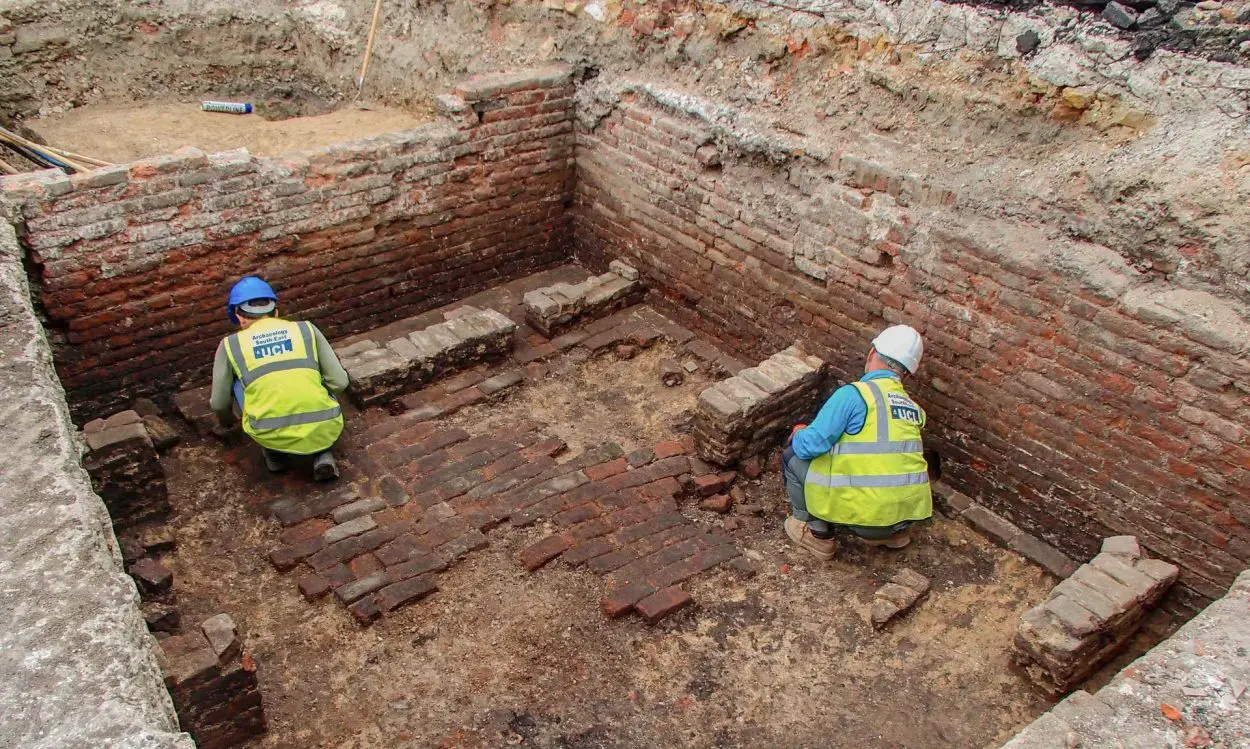Archaeologists from the UCL’s Institute of Archaeology have discovered the remains of what may be the Red Lion, an early Elizabethan playhouse built around AD 1567.
The Red Lion was a purpose-built playhouse in the yard of the Red Lion, a farmhouse east of Aldgate near Mile End. This was to be the first known attempt to provide a purpose-built playhouse in London for the many Tudor age touring theatrical companies, in particular staging a young Shakespeare’s plays in the 1590s.
The Red was financed by John Brayne who also financed, with his brother-in-law James Burbage, the building of the Theatre in Shoreditch.
The only contemporary information previously known about the playhouse was from two lawsuits issued in the Records of the Court of King’s Bench in 1567, between John Brayne and the carpenters commissioned with aspects of the playhouse construction that noted “the house called the red lyon” and “farme house called and knowen by the name of the Sygne of the Redd Lyon”. Location of the Red Lion Playhouse The lawsuit details ‘scaffolds’ or galleries around the stage, suggesting they were substantial.
The second lawsuit relates to the quality of work, and crucially includes a description of the stage and dimensions: 40ft (12.2m) north to south, by 30ft (9.1m) east to west, and standing at a height of 5ft (1.5m) above the ground. While it appears to have been a commercial success, the Red Lion offered little that the prior tradition of playing in inns had not offered.
Situated in open farmland, it was too far from its audiences to be attractive for visiting in the winter. Archaeologists excavating the site discovered a rectangular timber structure, comprising 144 surviving timbers and measuring 12.27m north-south by 9.27m east-west.
At these dimensions, the structure closely matches those detailed for the stage mentioned in the lawsuits. Postholes around the timber structure appear to correspond with the “scaffolds”, or galleried seating. Emily Gee, Historic England’s Regional Director for London and the South East, said: “This tantalising find follows the exciting recent discoveries of The Theatre and The Curtain playhouses in Shoreditch, and of the Boar’s Head in Aldgate, which together have immensely improved our understanding of the beginnings of English theatre.
We will continue to work closely with the developer to interpret these archaeological remains and display them so the public will be able to understand them within the finished development and appreciate the rich history of this site.”
Header Image Credit : UCL





